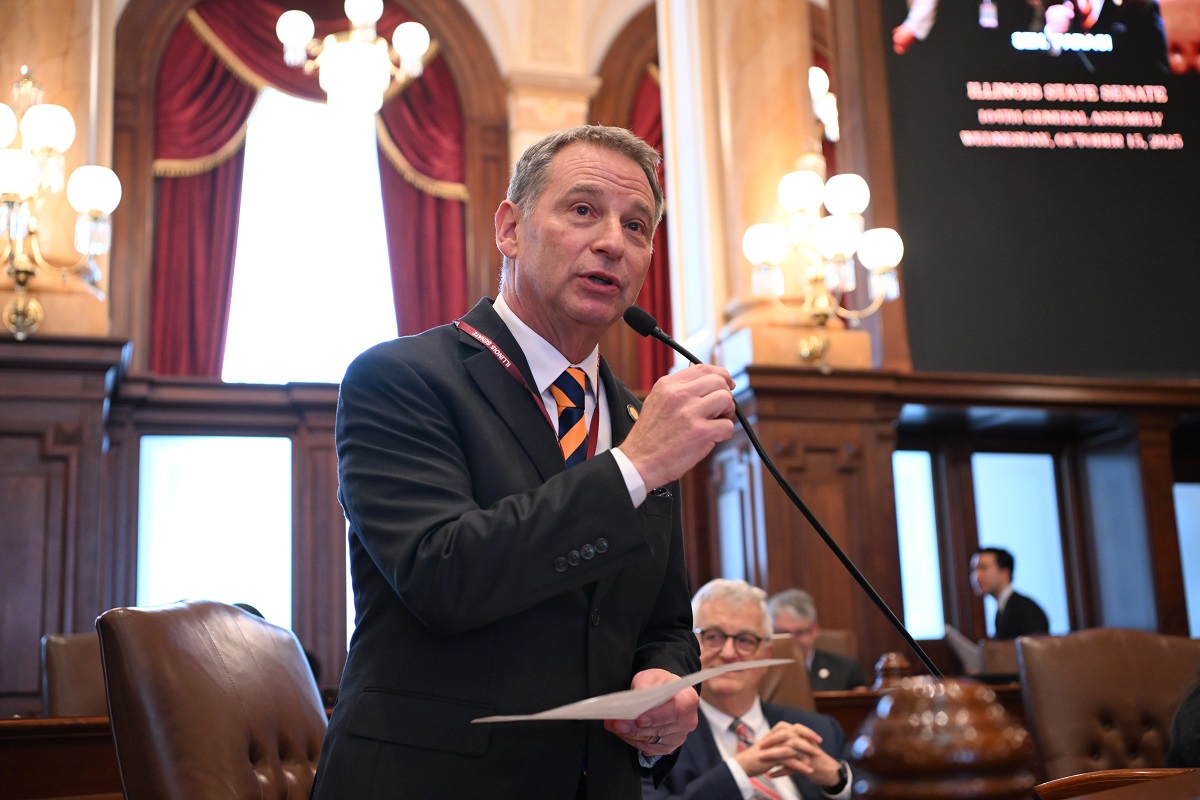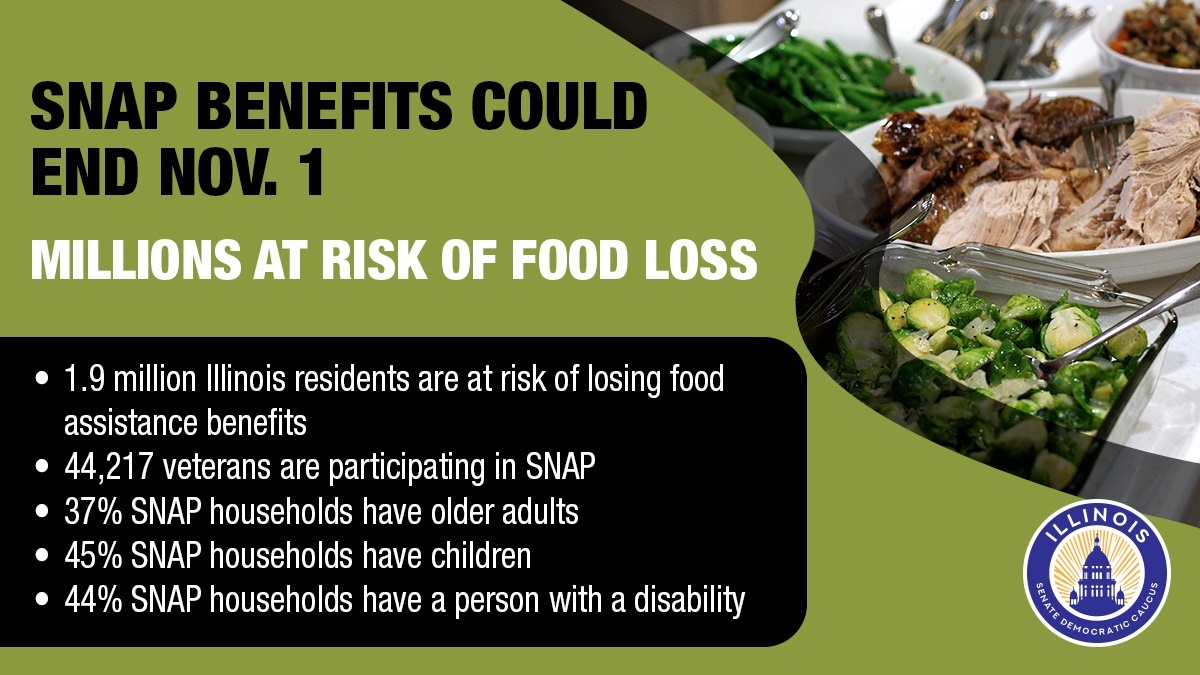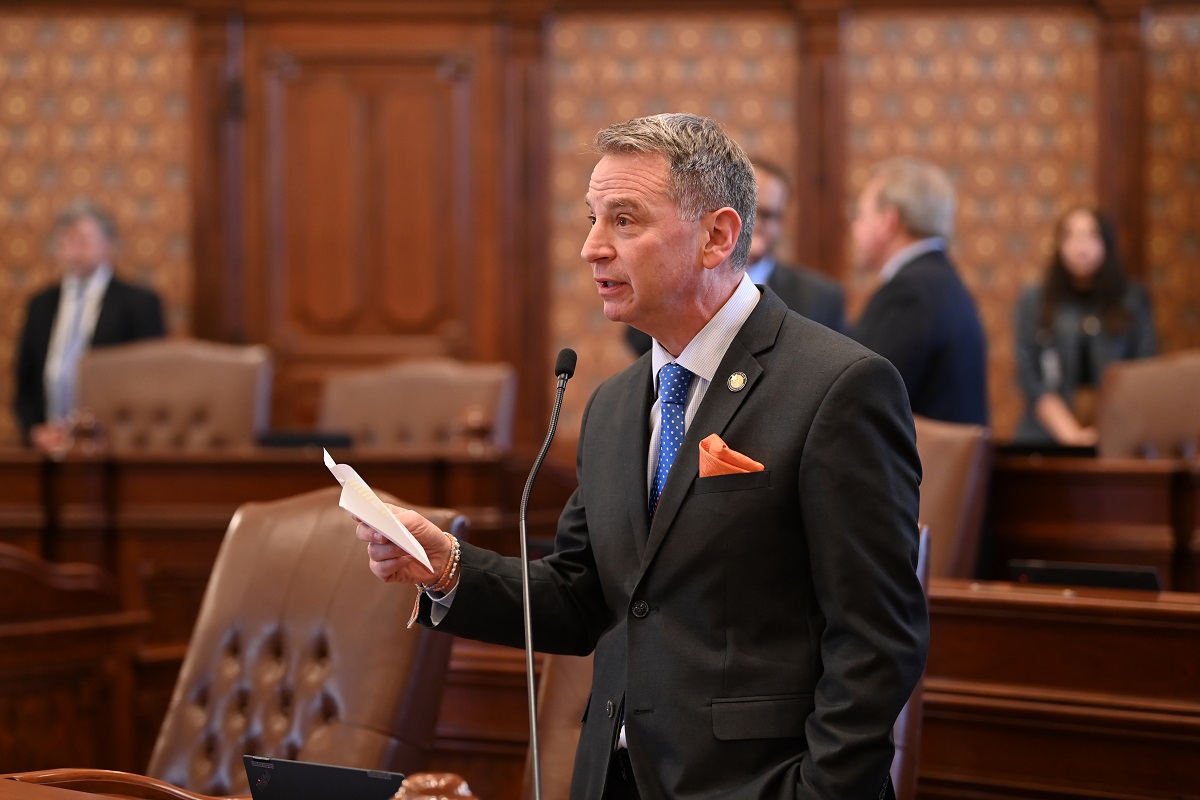 SPRINGFIELD – When a person with developmental disabilities goes missing, time is of the essence – but existing alert systems do not always address their unique needs. That will change Jan. 1, thanks to a new law from State Senator Paul Faraci that creates the Golden Search Awareness Program, ensuring law enforcement, families and communities have the tools to respond effectively.
SPRINGFIELD – When a person with developmental disabilities goes missing, time is of the essence – but existing alert systems do not always address their unique needs. That will change Jan. 1, thanks to a new law from State Senator Paul Faraci that creates the Golden Search Awareness Program, ensuring law enforcement, families and communities have the tools to respond effectively.
“Illinois currently uses AMBER Alerts, EMPA Alerts and Silver Alerts, but we need a specialized alert system for vulnerable populations – especially individuals who may not understand the dangers they’re in or can’t effectively communicate,” said Faraci (D-Champaign). “Implementing the Golden Search Awareness Program ensures we have a specific protocol in place to notify the public and police when at-risk Illinoisans go missing.”
Faraci’s law establishes a Golden Search Task Force, which will work to implement a statewide awareness program – in coordination with the Endangered Missing Person Advisory – to account for the specific needs of individuals with developmental disabilities. This initiative will help educate communities, law enforcement and organizations that support individuals with disabilities, making certain they know how to recognize and respond when someone with developmental disabilities goes missing.
 CHAMPAIGN – State Senator Paul Faraci and Illinois Treasurer Michael Frerichs recently teamed up to return $44,000 to the Champaign County Treasurer’s Office.
CHAMPAIGN – State Senator Paul Faraci and Illinois Treasurer Michael Frerichs recently teamed up to return $44,000 to the Champaign County Treasurer’s Office.
“We’re all committed to ensuring strong public finances, and I’m proud to partner with Treasurers Frerichs and Clark to safeguard every penny,” said Faraci (D-Champaign). “I hope Champaign County residents will take five minutes to visit the ICash website to see if they too have funds to claim.”
The money, owed to the county from Frontier Communications, came in over the summer to the State Treasurer’s Office, which is responsible for returning missing money to Illinois residents through the ICash program. Faraci quickly worked with newly appointed County Treasurer Byron Clark to help with the claims process. Treasurer Clark said he is thankful that the money is back where it belongs.
 CHAMPAIGN – State Senator Paul Faraci is urging federal lawmakers to resolve the ongoing government shutdown to prevent the cessation of Supplemental Nutrition Assistance Program, or SNAP, benefits, come Nov. 1. Nearly two million Illinois residents rely on SNAP to provide basic nutrition for themselves and their families.
CHAMPAIGN – State Senator Paul Faraci is urging federal lawmakers to resolve the ongoing government shutdown to prevent the cessation of Supplemental Nutrition Assistance Program, or SNAP, benefits, come Nov. 1. Nearly two million Illinois residents rely on SNAP to provide basic nutrition for themselves and their families.
"There are a number of misconceptions about the SNAP program and who benefits from food assistance,” said Faraci (D-Champaign). “The truth is this program serves a wide range of individuals, especially in our communities – our veterans, seniors, working families, children and people with disabilities. They are relying on this support to survive, and we cannot let them down.”
SNAP provides critical support for individuals and families, offering the nutrition they need to live healthy, productive lives. The federal government shutdown threatens to halt these benefits immediately, putting millions at risk of food insecurity – including the 40,585 people in the district Faraci represents who rely on SNAP benefits.
 CHAMPAIGN – State Senator Paul Faraci secured over $29 million to build and repair infrastructure in East Central Illinois through the state’s largest multi-year program in history.
CHAMPAIGN – State Senator Paul Faraci secured over $29 million to build and repair infrastructure in East Central Illinois through the state’s largest multi-year program in history.
“These investments are essential for our communities, helping to improve the safety of our commuters, create good-paying jobs in the district and reduce congestion on our local roadways,” said Faraci (D-Champaign). “Updating the infrastructure so many of our residents rely on – whether built for car, bike or foot – ensures our communities meet the demands of travelers today while making way for future opportunities for growth.”
The largest multi-year program to build and repair infrastructure in state history will invest $50.6 billion over six years, continuing an unprecedented investment in safety, mobility and quality of life made possible by the bipartisan Rebuild Illinois capital program. IDOT’s new multi-year program is both comprehensive and multimodal, with investments in roads and bridges, aviation, transit, freight and passenger rail, waterways, and bicycle and pedestrian accommodations touching every Illinois county.
More Articles …
Page 2 of 37



